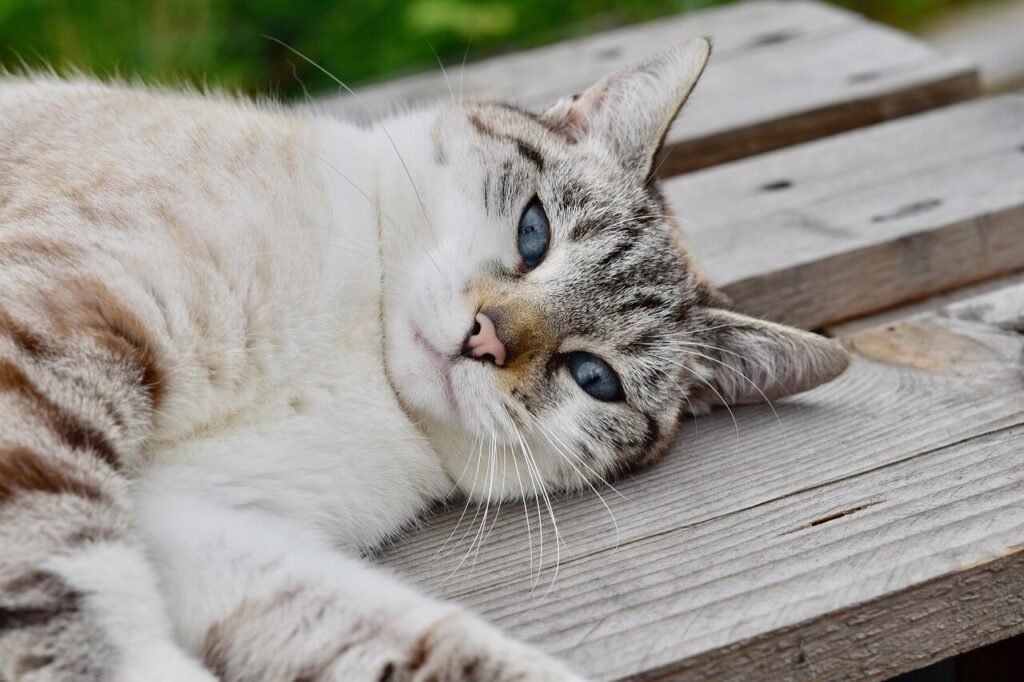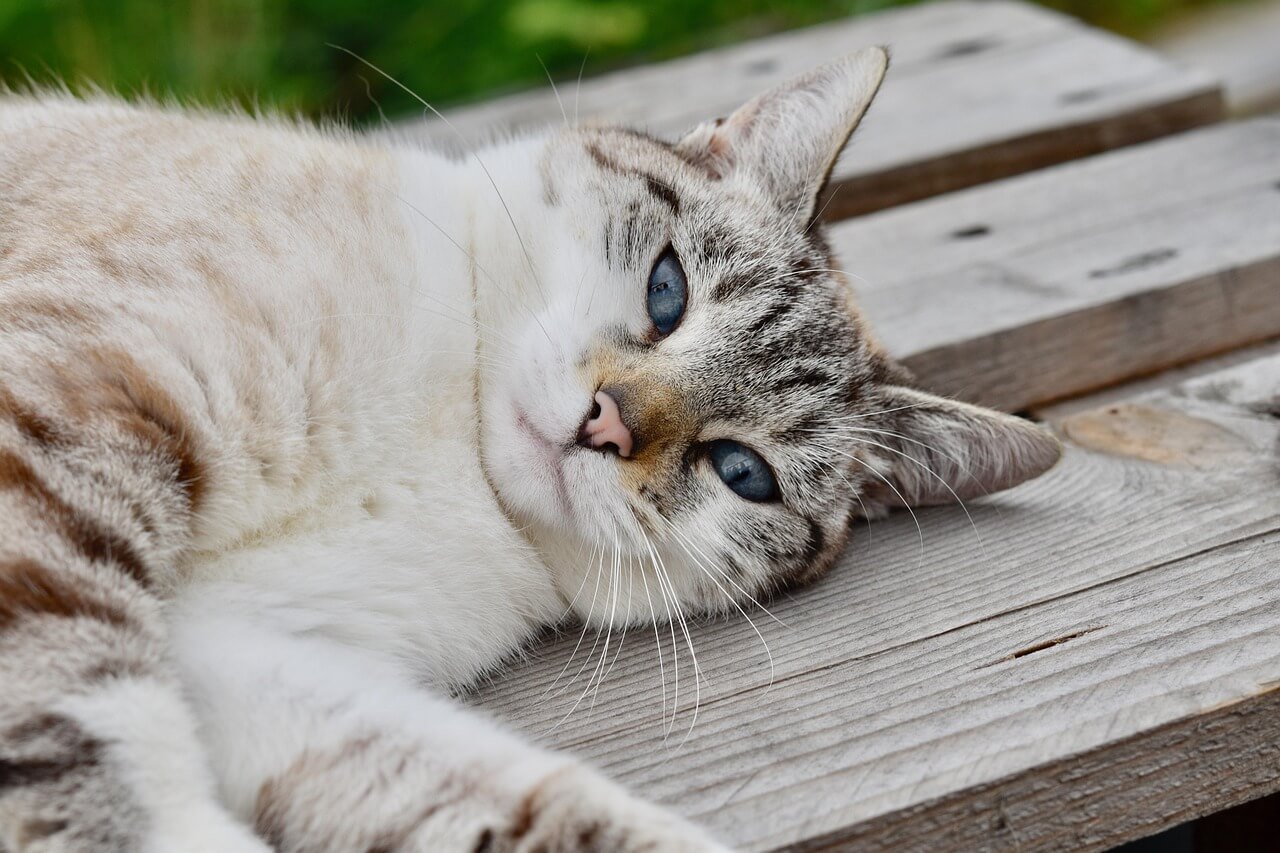Why Did My Cat Pee in My Suitcase?
Finding your suitcase soaked with cat urine can be frustrating and puzzling, especially if your feline friend has never done this before. While it might feel like a personal affront, cats don’t pee outside the litter box out of spite or malice. Instead, their behavior is driven by instincts, emotions, or underlying issues that need to be addressed. Whether your cat is marking territory, seeking comfort, or signaling a health concern, understanding the reasons behind this behavior is key to resolving it. In this blog post, we’ll explore why your cat might have peed in your suitcase and provide actionable tips to prevent it from happening again.
Common Reasons Cats Pee Outside the Litter Box
Cats are creatures of habit, so when they suddenly start urinating in unusual places like your suitcase, there’s usually a reason behind it. Here are some common explanations for this behavior:
Territorial Marking:
Cats often spray or pee on objects to mark their territory, especially if they feel threatened by changes in their environment.Stress or Anxiety:
Events like moving house, new pets, or loud noises can trigger stress, causing cats to seek comfort in familiar items like your suitcase.Health Issues:
Urinary tract infections (UTIs), bladder stones, or other medical conditions can make it painful for cats to use the litter box, leading them to find alternative spots.Litter Box Problems:
If the litter box is dirty, smells unpleasant, or is placed in an inconvenient location, your cat may avoid it altogether.Attraction to Scents:
Suitcases often carry your scent, which can attract cats looking for a sense of security or ownership over your belongings.
Understanding these triggers helps you identify the root cause and take steps to address the issue effectively.
How to Prevent Your Cat from Peeking in Your Suitcase
Preventing future incidents requires proactive measures to discourage your cat from viewing your suitcase as a bathroom. Here are some practical strategies to implement:
Clean Thoroughly with Enzyme Cleaners:
Use enzyme-based cleaners to eliminate all traces of urine odor, as residual scents can encourage repeat offenses.Store Suitcases Out of Reach:
Keep your suitcase in a closed closet or high shelf where your cat cannot access it easily.Provide Alternative Comfort Items:
Offer soft blankets or toys that carry your scent to give your cat a safer place to feel connected to you.Maintain a Clean Litter Box:
Scoop the litter box daily and change the litter regularly to ensure it’s inviting for your cat.Use Deterrents:
Place citrus-scented sachets or double-sided tape near your suitcase, as cats dislike these textures and smells.
By implementing these strategies, you can redirect your cat’s behavior and protect your belongings from unwanted accidents.
Check this guide 👉Understanding Why Cats Swish Their Tails: Best 7 Expert Tips
Check this guide 👉Why Does My Cat Walk on Me? Best 7 Expert Tips!
Check this guide 👉Why Does My Cat Touch Noses with Me? Best 7 Tips!

Reasons Cats Pee in Suitcases | Solutions to Address the Behavior |
|---|---|
Territorial marking | Use pheromone diffusers to reduce stress |
Stress or anxiety | Create a calm, predictable environment |
Health-related issues | Schedule a vet checkup promptly |
Litter box aversion | Improve litter box cleanliness and placement |
Attraction to owner’s scent | Provide scent-marked alternatives |
Signs Your Cat May Be Stressed or Unwell
If your cat is peeing in your suitcase, it could be a sign of an underlying issue that needs attention. Watch for these behavioral and physical signs to determine whether your cat is stressed or unwell:
Changes in Eating Habits:
A sudden increase or decrease in appetite may indicate stress or illness.Excessive Grooming or Scratching:
Over-grooming can be a coping mechanism for anxiety or skin irritation caused by allergies.Hiding or Avoidance:
Cats often retreat when they’re feeling scared or unwell, signaling a need for reassurance.Frequent Vocalization:
Increased meowing or crying may suggest discomfort or a desire for attention.Lethargy or Lack of Energy:
If your cat seems unusually tired or disinterested, it could point to a health issue requiring veterinary care.
Recognizing these signs early allows you to intervene promptly and restore your cat’s well-being.
Tips for Reducing Stress in Cats
Reducing stress can go a long way in preventing unwanted behaviors like peeing in suitcases. Here are some tips to create a calmer environment for your feline companion:
Establish a Routine:
Cats thrive on predictability, so stick to consistent feeding, play, and bedtime schedules.Create Safe Spaces:
Set up cozy hiding spots where your cat can retreat when feeling overwhelmed.Engage in Playtime:
Interactive toys and activities help burn off excess energy and alleviate boredom.Introduce New Changes Gradually:
Whether it’s a new pet or rearranged furniture, introduce changes slowly to minimize disruption.Use Calming Products:
Pheromone sprays or diffusers can help soothe anxious cats and promote relaxation.
By focusing on your cat’s emotional needs, you can foster a happier and more harmonious home environment.
Ways to Make Your Suitcase Less Appealing to Your Cat
To stop your cat from targeting your suitcase, make it less attractive while providing alternative options. Here’s how:
Remove Lingering Scents:
Wash your suitcase regularly to eliminate any lingering human or fabric softener scents that might attract your cat.Block Access Temporarily:
Store your suitcase in a sealed container or bag when not in use to limit your cat’s access.Add Unpleasant Textures:
Line the inside of your suitcase with aluminum foil or sticky mats, which cats dislike walking on.Redirect Their Attention:
Place engaging toys or scratching posts nearby to divert your cat’s focus away from the suitcase.Reward Good Behavior:
Praise and reward your cat when they leave the suitcase alone to reinforce positive habits.
With these tactics, your suitcase will no longer seem appealing to your curious feline.
How to Transition Back to Using the Litter Box
If your cat has developed a habit of avoiding the litter box, retraining them requires consistency and patience. Follow these steps to encourage proper litter box use:
Reevaluate Litter Preferences:
Experiment with different types of litter (clumping, non-clumping, scented, unscented) to find what your cat prefers.Change the Location:
Place the litter box in a quiet, low-traffic area where your cat feels safe using it.Increase the Number of Boxes:
For multi-cat households, ensure there’s at least one litter box per cat plus an extra one to reduce competition.Monitor Usage Closely:
Observe your cat’s behavior around the litter box to identify any lingering hesitation or discomfort.Gradual Reintroduction:
Encourage your cat to explore the litter box again by placing treats or toys near it to create positive associations.
By addressing litter box aversion systematically, you can restore normalcy to your cat’s bathroom habits.
When to Seek Professional Help
Sometimes, despite your best efforts, your cat’s behavior may persist or worsen. In such cases, seeking professional assistance is essential. Here’s when to reach out:
Persistent Health Symptoms:
If your cat shows ongoing signs of illness, such as straining to urinate or blood in their urine, contact your vet immediately.Severe Behavioral Changes:
Sudden aggression, withdrawal, or destructive behavior warrants evaluation by a certified animal behaviorist.Unresolved Litter Box Issues:
If your cat continues to avoid the litter box despite adjustments, a specialist can offer tailored solutions.Multiple Attempts Fail:
When DIY methods haven’t worked, professionals can provide insights and strategies you may not have considered.Emotional Distress:
If you notice your cat seems consistently unhappy or anxious, consulting a vet or behaviorist ensures their emotional needs are met.
Professional guidance can make a significant difference in addressing complex issues and improving your cat’s overall quality of life.
Frequently Asked Questions About Cats Peeing in Suitcases
Why does my cat keep peeing in my suitcase?
Your cat may be drawn to the scent of your belongings, feeling stressed, or experiencing a health issue.
Should I punish my cat for peeing in my suitcase?
No, punishment can worsen stress and damage your bond. Focus on addressing the underlying cause instead.
How do I clean my suitcase after my cat pees in it?
Use an enzyme cleaner to break down the urine and remove odors completely.
Could my cat’s age affect this behavior?
Yes, senior cats may develop cognitive issues or health problems that lead to inappropriate elimination.
What should I do if the behavior continues?
Consult your veterinarian to rule out medical issues and seek professional advice on behavioral training.
Restoring Harmony Between You and Your Cat
Discovering your cat has peed in your suitcase can be frustrating, but it’s important to approach the situation with patience and understanding. By identifying the root cause—whether it’s stress, territorial behavior, or a health concern—you can take meaningful steps to resolve the issue. With consistent effort and compassion, you can strengthen your bond with your cat and prevent future mishaps. Remember, your furry friend relies on you to meet their physical and emotional needs, and addressing this behavior is an opportunity to deepen your connection.
Do Cats Have Taste Buds? Best 7 Expert Tips! – Discover how cats experience flavors and why their taste is so unique.
Do Dogs Have Taste Buds? Best 7 Expert Tips! – Discover how dogs experience taste, their preferences, and what it means for their diet and health.
Can Cats Taste Sweet? Best 7 Expert Tips! – Discover why cats can’t taste sweetness, how it affects their diet, and tips to keep them healthy and happy.
Can Dogs Taste Sweet? Best 7 Expert Tips! – Discover how dogs perceive sweetness, which foods are safe, and tips to manage their sweet cravings responsibly.





